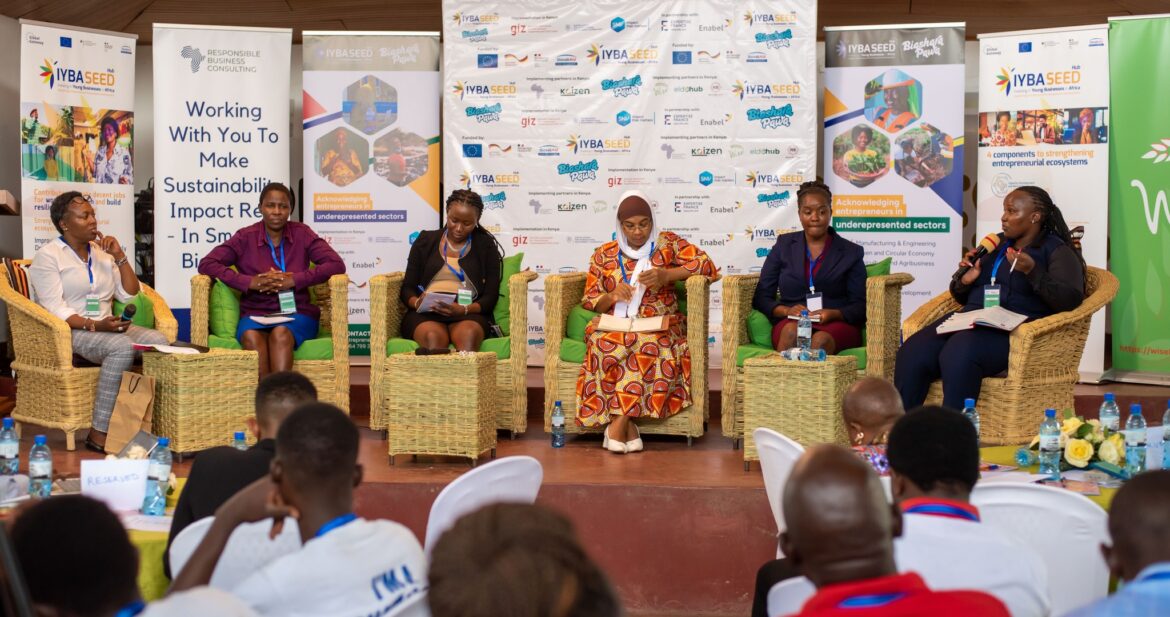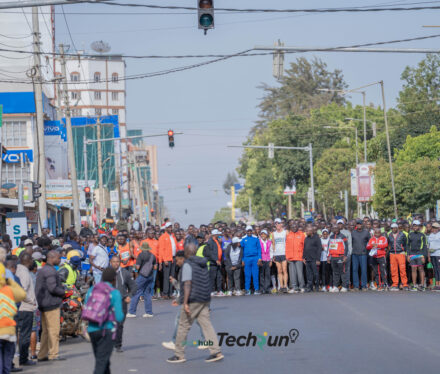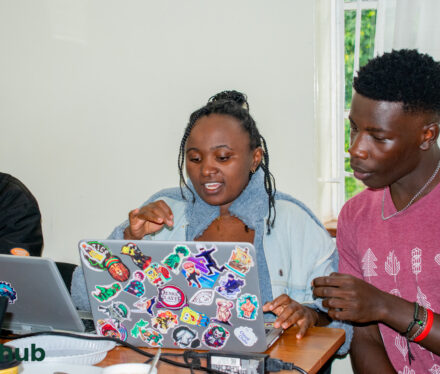Every time we hold a BiasharaPawa dialogue series, we seek two objectives: to train and to learn. These events serve as our barometer for ground-level needs a way to truly listen to the ground and ensure that our interventions remain grounded, relevant, and precisely targeted. While we always enter these dialogues with assumptions, the recent Kisumu event offered a vital correction, reaffirming the importance of the forum in guiding our thinking and sharpening our support to entrepreneurs.
During our first Kisumu County dialogue, we surveyed over 100 pre-seed and seed-stage entrepreneurs to understand their most pressing mentorship needs. The survey, which remains our most authentic compass, revealed a striking balance: the aspirational goal of Scaling and Networking tied exactly with the foundational need for Financial Literacy and Access to Finance. Both priorities received 27% of the vote. When combined, the message from these dynamic young business owners becomes unmistakable more than half (54%) are telling us that their immediate priority is money, and the knowledge to manage it well.
Yet, the dialogue revealed that the challenges go far beyond financial skills. One of the most powerful insights emerging from the conversations was the impact of deep-rooted cultural norms on entrepreneurship. Participants openly spoke about the stigma surrounding business, using Luo terms such as kwero, masira, chike mar chon, timbe mar chon, and chiira expressions describing what is taboo or forbidden. For many women and youth, entrepreneurship still exists outside what is socially accepted. Before seeking funding or markets, some must first negotiate for social permission to break away from traditional expectations.
This cultural resistance has real economic consequences. Women across Kenya continue to face disproportionate barriers accessing credit despite stronger repayment performance. This challenge also seems to extend into the financial services with more support to men than women, despite women nationally representing higher averages of servicing their loans. A 2024 report published by Financial Sector Deepening Kenya reveals that female borrowers accounted for only 29% of the Ksh 4.733 trillion in loans disbursed over the past five years, despite demonstrating better repayment rates than men. Women borrowed Ksh 1.375 trillion compared to Ksh 3.35 trillion by men, highlighting a missed opportunity for lenders, as women represented only 36% of new negative listings.
The study further indicated that women faced more barriers to accessing credit, including higher borrowing costs and limited loan amounts. This is a significant opportunity for financial institutions to innovate products tailored for women and eliminate biases to better engage this underserved market segment. According to government insights, about 31.4 percent of MSMEs in Kenya are women-led and women-owned, contributing 40 percent of the country’s Gross Domestic Product (GDP) with an annual job creation rate of 30 percent.
Against this backdrop, the financial literacy gaps highlighted in the Kisumu survey take on even deeper meaning. Entrepreneurs expressed that while they are ambitious and eager to grow, many lack the practical financial skills needed to manage cash flow, assess risks, and navigate Kenya’s formal financial system, which often demands collateral that most young entrepreneurs simply do not have.
These challenges have fueled a powerful grassroots response: the reliance on Chamas.
A Chama (a Swahili word for an association or self-help group) is an informal, community-based savings and investment club. A small group of people pool their money on a regular basis (weekly or monthly), creating a communal fund. Members can then take low-interest loans from this collective pot, or receive a lump sum on a rotational basis to invest in their businesses or household needs.
This model is a powerful innovation because it transforms social trust into financial security, effectively replacing the need for formal bank collateral. It is a beautifully effective, community-driven solution to a structural challenge. Today, it is estimated that there are over 300,000 Chamas holding between Kes 300–500 billion (US$ 2.5–4 billion) in savings and assets.
The popularity of Chamas among Kisumu’s entrepreneurs underscores the need for the wider ecosystem to take community finance seriously, not as an informal workaround but as a viable financial model that meets people where they are. Their success demonstrates that when the financial system excludes women and youth, communities create their own solutions—solutions that work.
What became clear during the BiasharaPawa dialogue is that transforming entrepreneurship in Kisumu requires more than technical skills or access to capital; it demands a deliberate shift in social norms. Women and youth make up 70% of Kenya’s population, and when outdated expectations limit their entrepreneurial potential, the county and the country incur a loss. Meaningful transformation calls for honest conversations, shared testimonies, community advocacy, and a rebranding of what entrepreneurship represents within families and communities. Initiatives by organisations such as SNV Kenya and partners like Wise Hub Foundation are already paving the way, but much more needs to be done to embed entrepreneurship within the region’s social fabric.
The turnout of more than 100 entrepreneurs at the forum shows how ready Kisumu’s women and youth are for change. They have the ideas, the resilience, and the hunger to transform their economic futures. What they need now is an ecosystem that is equally ready county governments, enterprise hubs, academia, financial institutions, private sector partners and community leaders to support them with inclusive mindsets, practical financial resources, and social acceptance.
The insight from Kisumu is clear: the barriers to entrepreneurship are both cultural and financial. By addressing stigma, strengthening financial foundations, and recognising the power of community finance, the ecosystem can unlock the potential of businesses that are ready to grow. Kisumu’s entrepreneurs have already taken the first step. Now it is our turn to walk with them.











